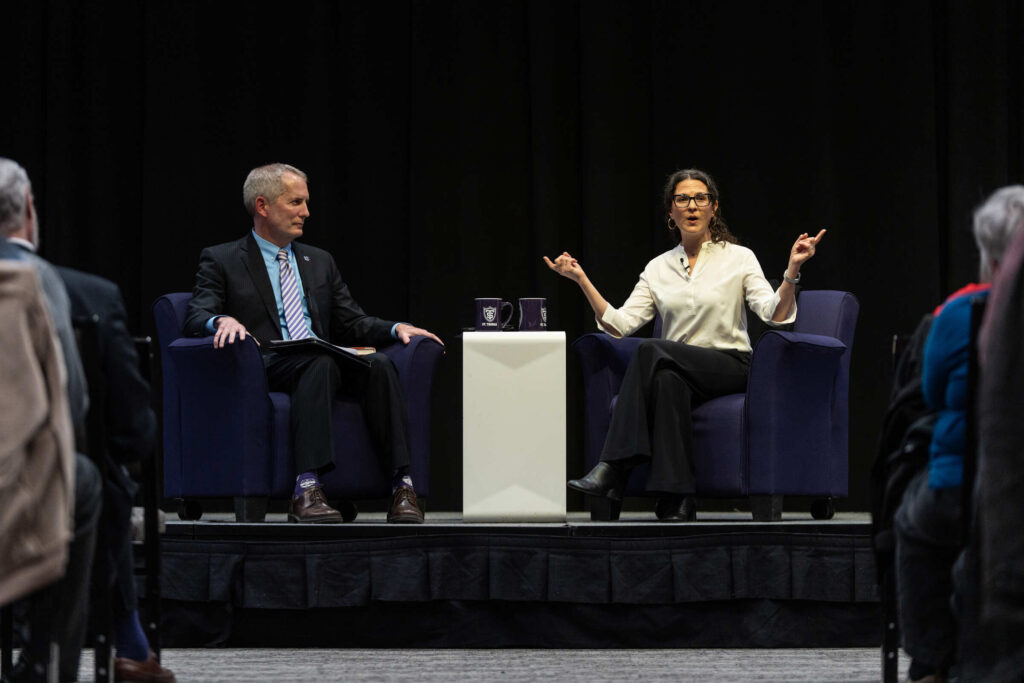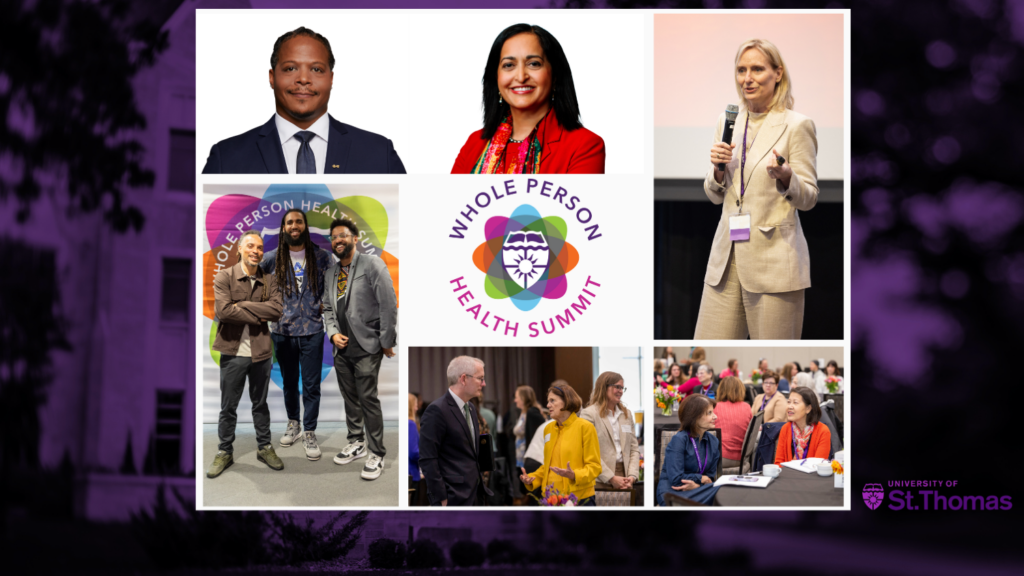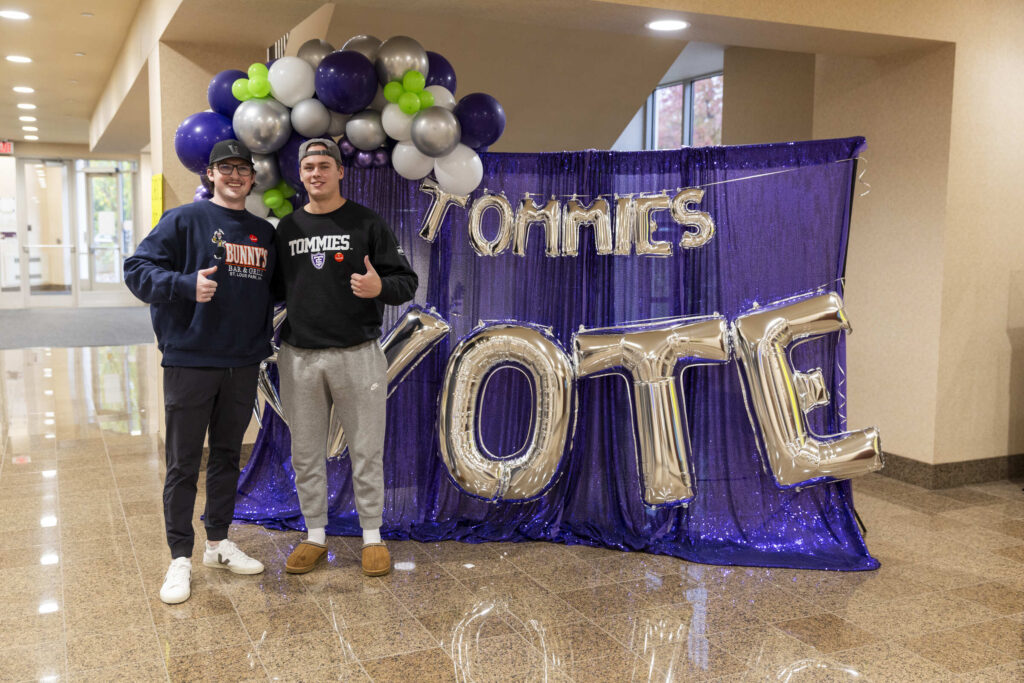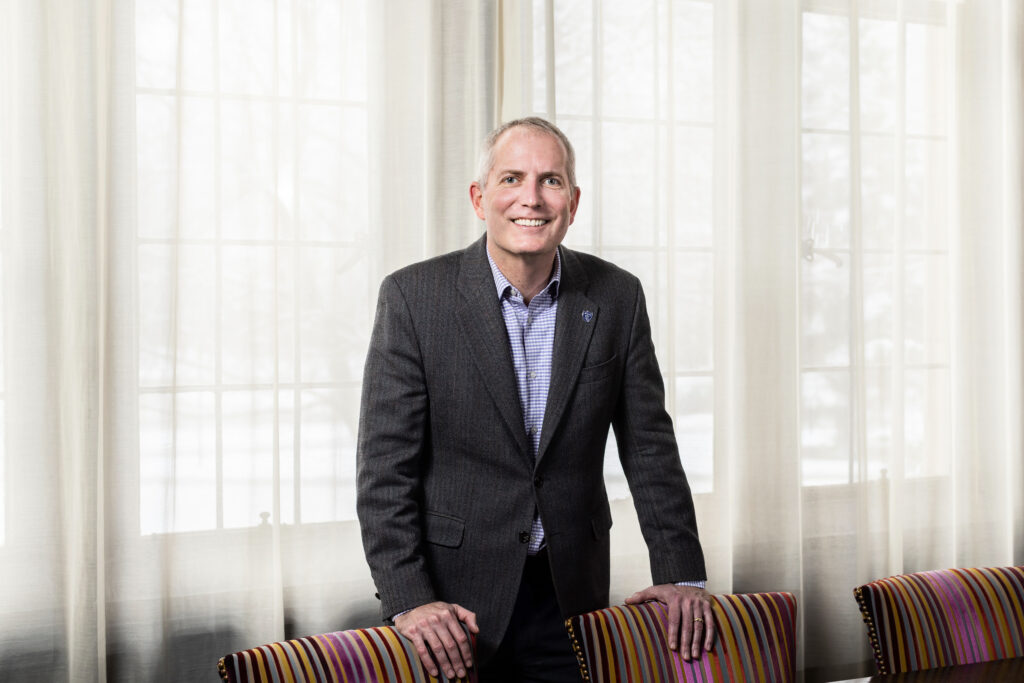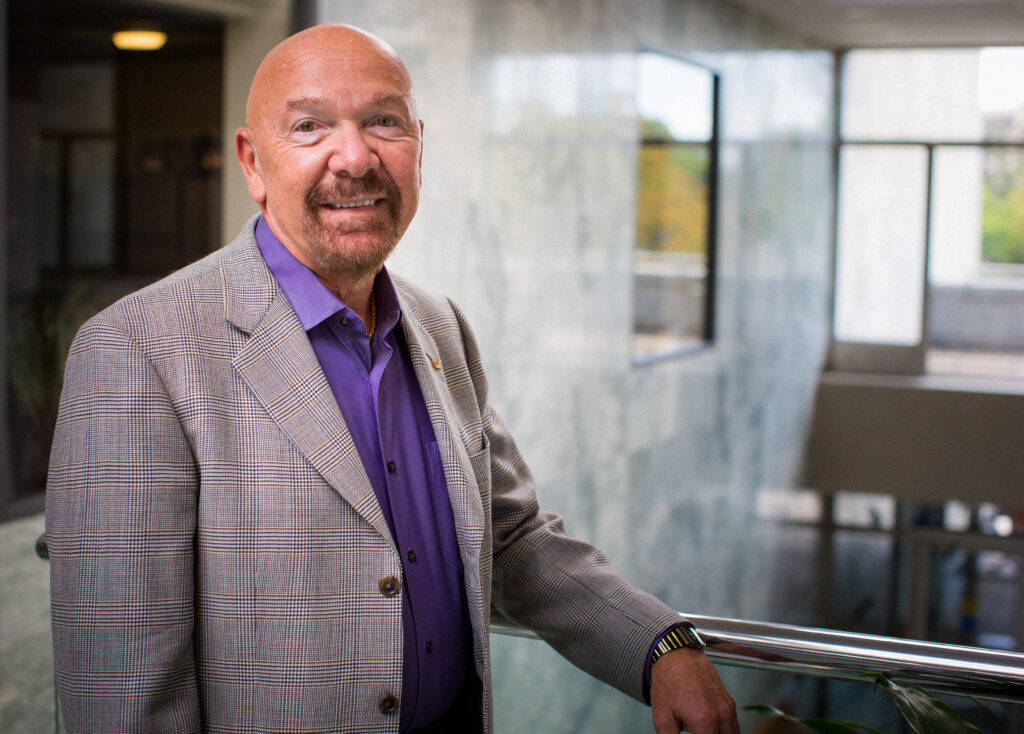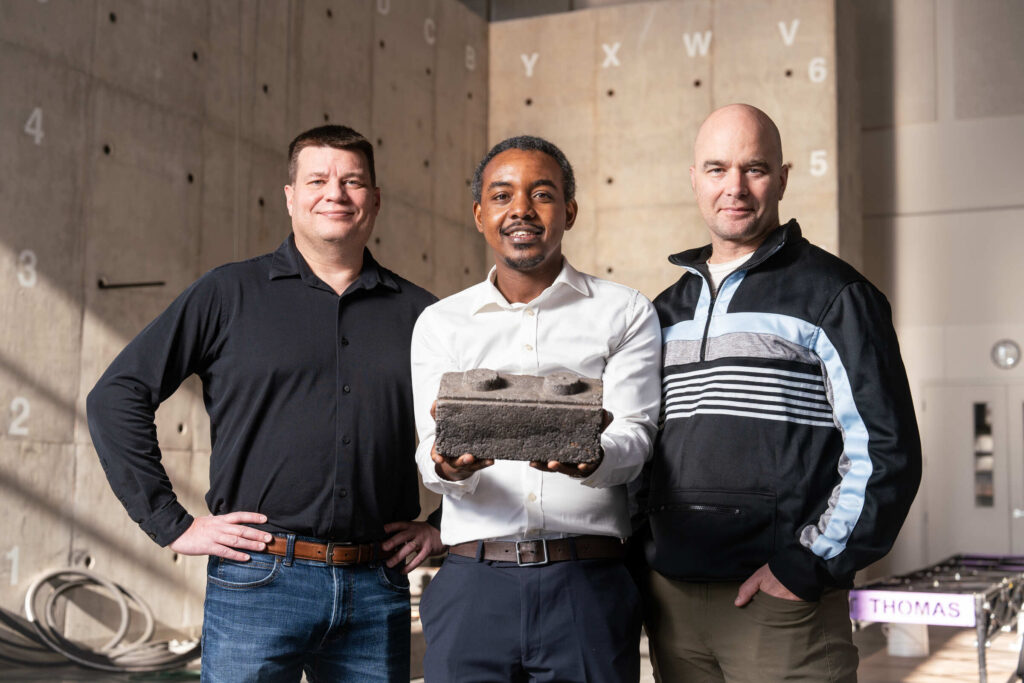While the student traffic across Summit Avenue is much lighter, things are far from quiet on the St. Thomas campus over the summer months. Dozens of Tommies - 44, to be exact - are spending their summer working full-time on research thanks to funding from St. Thomas grants, including Young Scholars, Community-based Research and Sustainability Scholars.
The Newsroom caught up with some of these emerging scholars to find out what they're studying, why they're so interested in it, and what it's been like to become dedicated researchers.
Kristina Klein
Title: Activating "Acting Wisely": Investigating the Role of Tacit Knowledge in Collegiate Success.
Major: Psychology
Mentor: Gregory Robinson-Riegler
Grant: Young Scholars
What’s so intriguing about this subject for you?
My general question is how well different types of "intelligence" relate to academic access. I'm comparing traditional measures of academic ability (e.g., ACT questions) to what some call "tacit knowledge", which refers to everyday practical knowledge gained through life experience. I first felt a spark for my topic while at a national research conference last October in Rhode Island, specifically while listening to a presentation by Robert Sternberg. I find it intriguing because education systems place such heavy weight on academic ability, while research has shown a strong relationship between many achievements in real-world settings, such as the work place, and drawing upon life experiences.
What’s the most interesting thing you’ve found so far in your research?
I am still in my data collection phase, so I have not run any data analyses.
What has this research opportunity added to your overall academic experience?
It has taught me crucial research skills that I will be able to carry over into my graduate studies.
What have been the biggest benefits of getting to work closely with an academic advisor like you have this summer?
One of the many benefits from working closely with my faculty advisor has been being able to learn one-on-one. That type of instruction has allowed me to ask in-depth questions and focus on areas intriguing to me.
Happy-Sarah Kim
Title: Characterization of Promoter Region Controlling Novel Gene Expression in E. coli Bacterium
Major: Biochemistry
Mentor: Justin Donato
Grant: Young Scholars
What’s so intriguing about this subject for you?
Chemistry was definitely not a subject I thought I would be doing research in but I think that what was most intriguing was how applicable and relevant it is. It explains why and how everything exists the way that it does, which is both interesting and a powerful tool!
What’s the most interesting thing you’ve found so far in your research?
My research is in antibiotic resistance in bacteria, specifically studying genes that cause resistance so that we can understand the mechanisms and develop methods of combatting antibiotic resistance. The most interesting thing I’ve done this summer has been to genetically engineer a sensor for toxins in bacteria that may help to find non-antibiotic options that weaken and/or kill the bacteria.
What has this research opportunity added to your overall academic experience?
Research posed a lot of new experiences for me: writing a grant proposal, learning many techniques, working closely with a professor and my lab, presenting my work to other students and researchers. I think all these experiences were initially challenging but gave me a new appreciation for what it looks like to “do science” and “become an expert” in something, which is relevant for any subject or career.
What have been the biggest benefits of getting to work closely with an academic advisor like you have this summer?
The biggest benefit is the opportunity to get to know, troubleshoot, discuss and receive guidance from someone who has years of experience and knowledge more than I do, whether we are talking about the research project or just everyday life things. Also, having my advisor double as my professor for lecture this coming fall is definitely a benefit!
William Hancuch
Title: Do Expansions to Parental Medicaid Cause Crowd-out?
Major: Economics, Political Science
Mentor: Matthew Kim
Grant: Young Scholars
What’s so intriguing about this subject for you?
I’m currently researching for evidence of crowd-out in recent Medicaid expansions. Crowd-out refers to a phenomenon that expanded Medicaid eligibility may lure people away from private coverage, thus failing to improve overall rates of health insurance for those previously uninsured. In other words, Medicaid is said to crowd-out private coverage to the extent that Medicaid enrollees would otherwise be privately covered if they didn’t have Medicaid eligibility.
What’s so intriguing about this subject for me is the public policy of interest: Medicaid. Medicaid focuses on and providing health care for those that can’t afford it and general poverty alleviation. My research is interested in the incidence of the policy, or in simpler terms, how it is distributed in practice. With a greater understanding of crowd-out and the effectiveness of Medicaid expansions, policymakers can continue to draft better policy that aims at empowering individuals to fulfill their potential. Working on policy research that benefits those that are least fiscally fortunate has been very rewarding.
What’s the most interesting thing you’ve found so far in your research?
I’m currently still working on data management and prepping the data for regressions to unearth potential evidence of crowd-out. So, the most interesting and impactful aspects of the research are still yet to come.
With that being said, what I’ve found most interesting thus far is my continued learning with the statistical program, Stata. Learning how to write computer programs and basic coding has been something new for me as an Economics and POLS major and I’ve enjoyed learning something new and practical.
What has this research opportunity added to your overall academic experience?
This research opportunity has allowed me to take what I’ve learned from my previous academic experience and apply it tangibly to a research project. It has been rewarding to utilize past experience and skills I’ve learned in Public Economics and Econometrics in the real world; beyond just the classroom or research papers.
What have been the biggest benefits of getting to work closely with an academic advisor like you have this summer?
The biggest benefit of working so closely with an academic advisor is the one-on-one learning attention you get on the subject matter you care about. I’ve learned so much about academia and what it takes to do research to the expected caliber, something that would be very difficult without an advisor to guide you along the way.
Click here to see what the rest of St. Thomas' summer scholars are studying.

